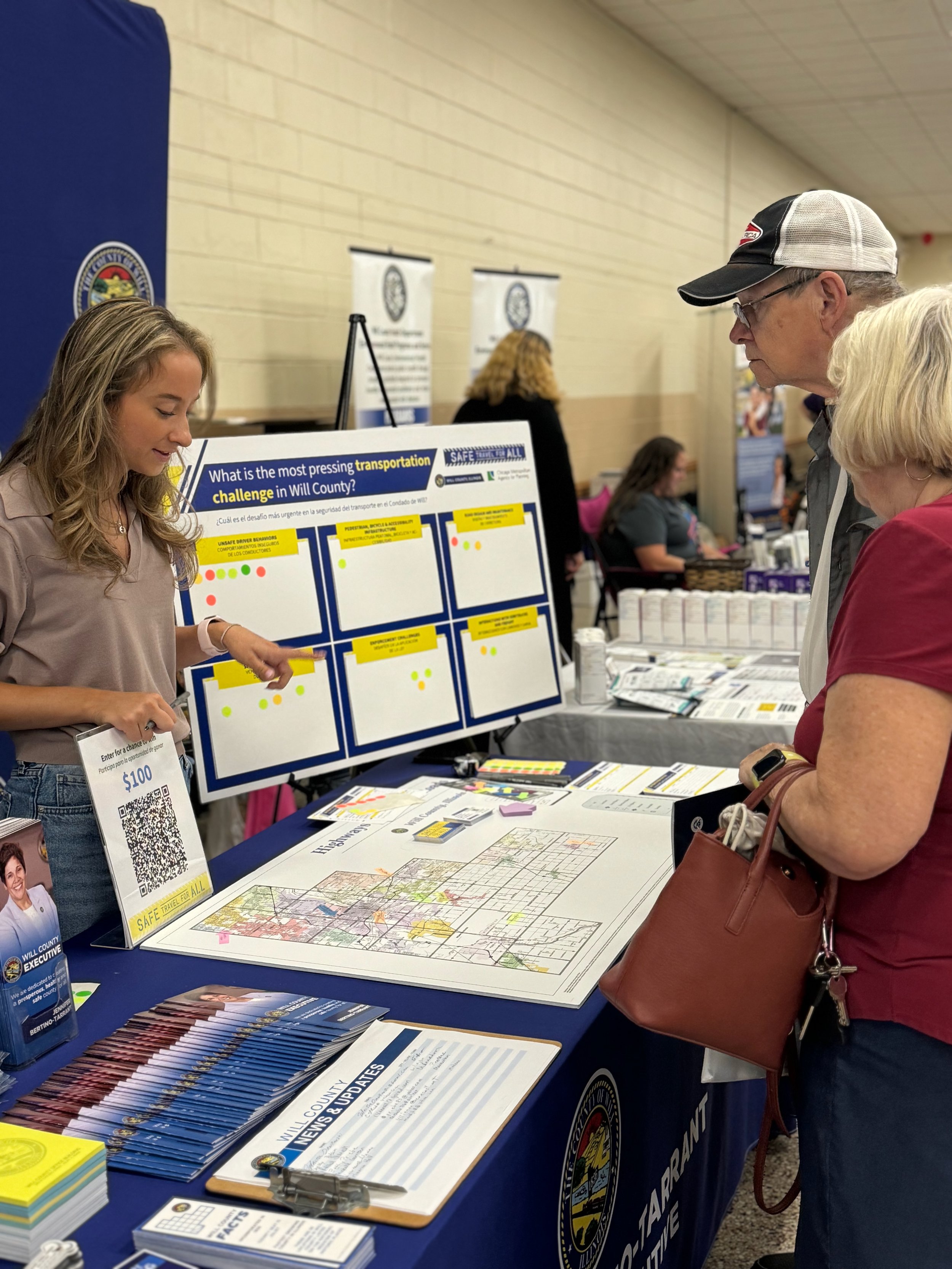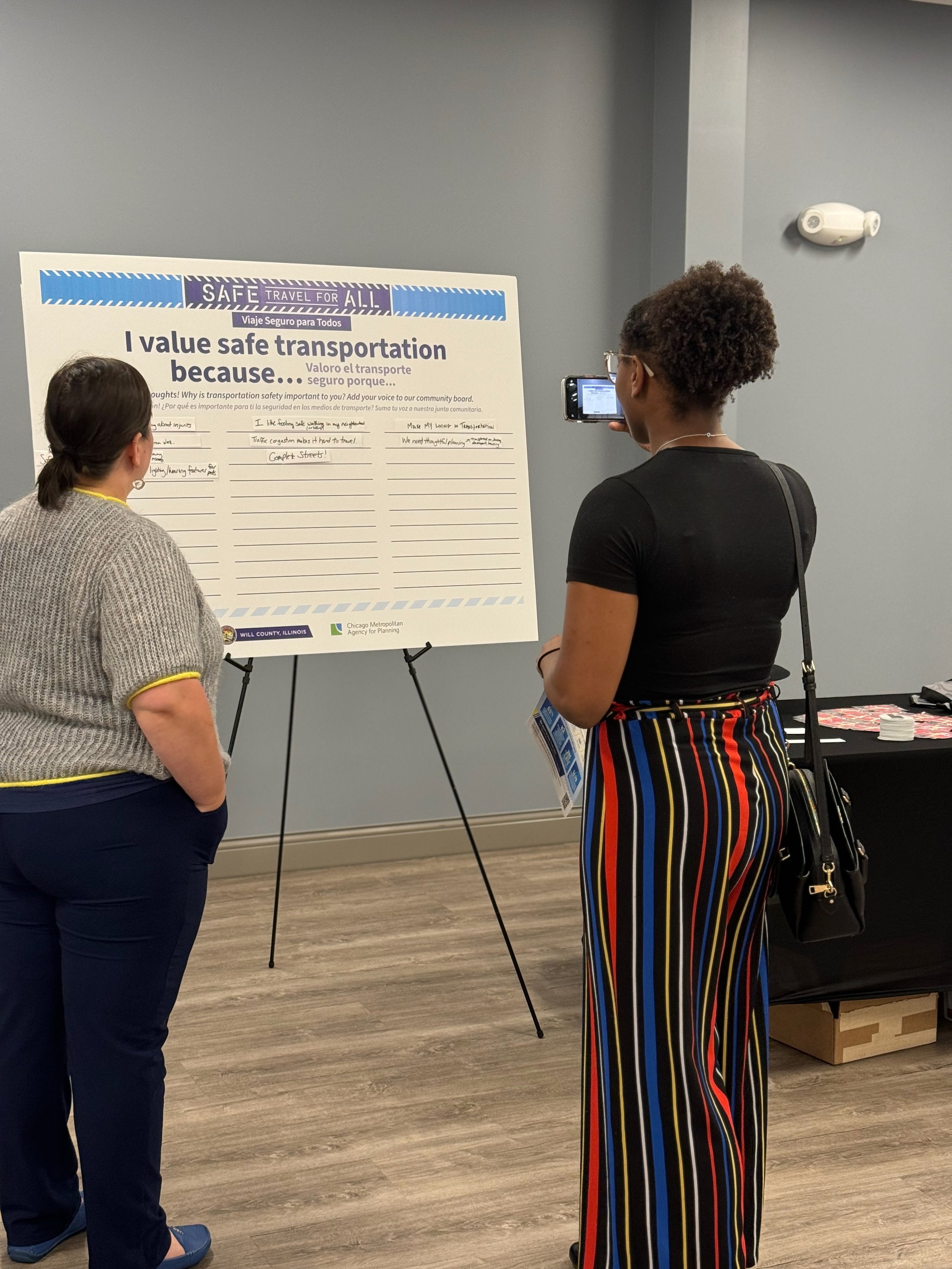Engaging Will County: A Safer Roadmap for All
Client: Will County and the Chicago Metropolitan Agency for Planning (CMAP)
Prime Consultant: WSP
Engagement Sub-Consultant: Krantz Strategies
Project Overview
The Will County Safety Action Plan is a community-driven roadmap to make roads safer and save lives. The plan focuses on reducing serious injuries and fatalities on local roads, especially for people walking, biking, or using mobility devices, and for communities that have been disproportionately affected by crashes.
Part of CMAP’s regional Safe Travel for All initiative, the plan helps position Will County to pursue federal funding through the Safe Streets and Roads for All (SS4A) program. It was officially adopted by the Will County Board, signaling strong political support and a commitment to implementation.
The plan outlines practical projects, policy solutions, and safety strategies that reflect community priorities and support a safer, more equitable transportation system.
Our Role
As the Engagement Sub-Consultant, Krantz Strategies was responsible for designing and leading the public involvement process. Our role was to build awareness, invite input from all corners of the county, and ensure that community voices helped shape the plan from day one.
We facilitated all Steering Committee meetings, led one-on-one and small group conversations with municipal partners, developed public-facing materials, and coordinated with project partners to integrate input into each phase of the planning process.
The Challenge
Will County includes a mix of rural, suburban, and urban communities, each with different transportation needs and safety concerns. At the outset, public familiarity with transportation planning was limited, and there were barriers to participation in many communities that experience the most traffic-related harm.
We needed to build trust quickly, offer multiple ways to engage, and ensure people saw their input reflected in the final plan. At the same time, we were asked to deliver this work on an accelerated timeline without compromising quality or inclusivity.
Engagement Highlights and Impact
Krantz Strategies led a comprehensive and accessible outreach campaign to connect with residents and stakeholders across the county. Engagement tactics included:
Creating content for a public-facing project website that received over 3,100 visits and maintained a 13.8 percent engagement rate
Launching an interactive mapping tool that gathered 569 public comments identifying unsafe locations
Designing and deploying a countywide survey that brought in 106 detailed responses about residents’ safety priorities and concerns
Hosting a pop-up booth at the Will County Fair, where 102 participants contributed over 160 location-specific safety concerns
Organizing a community open house in Romeoville tailored to older adults, with 25 participants engaging in hands-on activities and printed surveys
Developing bilingual materials and translated surveys to ensure Spanish-speaking residents could participate fully
Facilitating five Steering Committee meetings that guided key milestones, built ownership, and aligned agency partners
Leading direct municipal outreach and meetings with more than 30 community leaders and partner organizations
This process brought local knowledge and lived experience into every phase of planning. Residents identified critical issues like speeding, missing sidewalks, poor lighting, and dangerous intersections. Municipal leaders provided insight into policy gaps, infrastructure needs, and opportunities for collaboration.
The Will County Board adopted the final plan by resolution, demonstrating high-level buy-in and helping the County meet the eligibility criteria for future SS4A grant applications. Local partners remain engaged and committed to supporting implementation as the plan moves forward.
Through inclusive engagement and strong local partnerships, Krantz Strategies helped ensure the final plan reflects real community needs. We also delivered this work six months ahead of schedule, proving that thoughtful, high-impact engagement is possible even on a fast-moving timeline.




